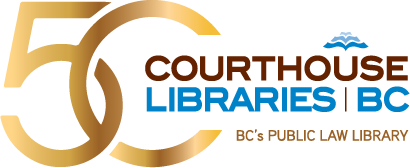Provincial legislation
According to the Permit Regulation under the Wildlife Act, it is not an offence to possess bird feathers except feathers from “migratory insectivorous birds or migratory nongame birds" both as defined in the Convention appended to the Migratory Birds Convention Act, or unless otherwise listed by prohibition.
Prohibitions regarding the possession of eagle parts, including feathers can be found in s. 6 of the Permit Regulation. The Designation and Exemption Regulation provides an exemption from s. 33(2) of the Wildlife Act (possession of wildlife) for treaty First Nations.
For non-protected birds, there are General Wildlife Permits from the province of British Columbia for personal display, education/scientific purposes, ceremonial purposes and sustenance.
Federal legislation
The Schedule (Section 2) of the Migratory Birds Convention Act, 1994 lists protected birds in Article 1. The Government of Canada also maintains a searchable list of protected birds. Birds protected federally include woodpeckers, herons, geese and most ducks.
Birds generally not under federal jurisdiction include hawks, owls, eagles, and falcons among others unless they are an endangered species.
Protected birds may also be found in Schedule 1 of the Species at Risk Act. General prohibitions, including possessing any part of a protected species are found in s. 32 of the Act.
The Migratory Birds Regulations 2022 provides information about permits, usage and exemptions. Section 35 of the Constitution Act, 1982 recognizes Aboriginal and treaty rights and provides special exemptions for hunting and harvesting, exchange, and possession rights for Indian, Inuit and Métis peoples of Canada.
Other permits under the Migratory Birds Regulations include:
- Migratory game bird hunting
- Damage or danger
- Airport
- Scientific
- Aviculture
- Taxidermist
- Eiderdown commerce
- Charity
Conditions regarding use of migratory bird feathers can be found in s. 13(3) of the regulations.
If you come across feathers, or deceased wildlife that is protected under the Wildlife Act, Migratory Birds Convention Act, 1994 or Species at Risk Act, you must turn it into a natural resource officer or face receiving fines, up to a prison sentence for repeat offences.
In British Columbia, questions about the Wildlife Act can be directed to the Minister of Water, Land and Resource Stewardship. Questions about federal acts should be directed to the Minister of the Environment.
Content reviewed December 3, 2024
- Wildlife Act [RSBC 1996] c. 488) - BC Laws
- Permit Regulation, BC Reg 253/2000 -BC Laws
- Designation and Exemption Regulation BC Reg 168/90 - BC Laws
- Migratory Birds Convention Act, 1994, S.C. 1994, c.22- Justice Laws
- Migratory Birds Regulations, 2022 SOR/2022-105 Justice Laws
- Species at Risk Act, S.C. 2002 c. 29.- Justice Laws
- Constitution Act, 1982, being Schedule B to the Canada Act 1982, 1982, c 11 (UK) - Justice Laws
- Birds protected under the Migratory Birds Convention Act - Canada.ca - Government of Canada
- General Wildlife Permit - Authorization Guidance - Natural Resource Online Services (gov.bc.ca) - BC Government
